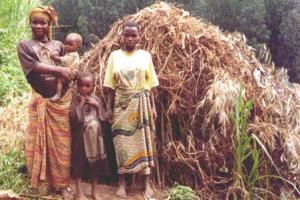Background
A number of participants at the World Social Forum 2004 met in Mumbai and believing that forest issues are in essence social and political and that forest communities are increasingly affected by globalization --and new forms of trade and economic liberalization that comes in its way-- agreed on the need to create a global movement to ensure forest conservation and peoples' rights over forests. The principles on which the movement would be based were agreed upon and circulated by the groups as the Mumbai Forest Initiative - Statement of Principles.
India
Bulletin articles
26 December 2004
A project earmarked for the biodiversity rich Sundarbans is being firmly opposed by environmentalists and local population, who fear that it will harm the world’s biggest mangrove forests.
The Lucknow-based Sahara group, in partnership with the state, is setting up an enormous and controversial ‘eco-tourism’ project in the Sundarbans, which experts warn would do the ecologically fragile region more harm than good.
Bulletin articles
26 December 2004
The Indian Environment Action Group Kalpavriksh has recently reprinted the report titled: 'Undermining India - Impacts of mining on ecologically sensitive areas', which it had published in March 2003.
Other information
27 October 2004
The Malapantaram are a nomadic community numbering about 2000 people who live in the high forests of the Ghat Mountains of south India. Early writers described them as “wild jungle people” and as “wandering hillmen of sorts”, and tended to see them as social isolates, as a survival of some pristine forest culture.
Bulletin articles
27 October 2004
Outsiders are invading the reserve of the isolated Jarawa tribe in the Andaman Islands, India, and stealing the game on which they depend for food. There are also increasing reports of Jarawa women being sexually exploited. Despite a Supreme Court order to the islands’ administration to close the highway which runs though the reserve, it remains open, bringing disease and dependency.
Bulletin articles
27 September 2004
The Sundarban, covering some 10,000 square kilometres of land and water, is the largest contiguous block of coastal mangrove forests in the world and is part of the world’s largest delta formed from sediments deposited by the three great rivers —the Ganges, Brahmaputra and Meghna— which converge on the Bengal Basin.
The UNESCO had declared a portion of the Bangladesh Sundarban as World Heritage site in 1997, and the U.N. Development Programme (UNDP) has funded projects to save it from degradation.
Other information
10 August 2004
PRESS RELEASE -
In a National Consultation held in Delhi on August 7, 2004, several civil society organisations in India including major national alliances on mining, forestry and dams and hydro power, rejected the World Bank’s Country Assistance Strategy (CAS) 2004 on the grounds of:
Bulletin articles
29 July 2004
At the entrances to the Pench Tiger Reserve straddling the states of Maharashtra and Madhya Pradesh are signposts with the words "welcome to Mowgli's land." Mowgli, in Rudyard Kipling’s nineteenth century children’s book entitled “Jungle Book,” is a young boy who grows up talking to all the other inhabitants of the jungle including a mongoose and an elephant. There is no question of Mowgli and his people not living symbiotically with animals in the dense forest.
Other information
4 April 2004
At the end of a National Conference on Community Ownership of Forests (April 2-4, 2004), organised by Jharkhand Save the Forest Movement, National Forum of Forest People and Forest Workers, and Delhi Forum, held in Chalkhad, a forest village in the Indigenous Peoples majority State of Jharkhand in eastern India, around two hundred indigenous Munda (a central Indian indigenous ethnic group) representatives resolved in unison to “Oppose World Bank: And Save Forests”.
Bulletin articles
4 April 2004
In 2002, a number of organizations and individuals working together to influence the World Summit on Sustainable Development (WSSD), created the Global Caucus on Community-Based Forest Management, which was successful in influencing government delegates to “recognize and support indigenous and community based forest management systems to ensure their full and effective participation in sustainable forest management.” (article 45h of the WSSD Report)
Bulletin articles
11 March 2004
Mining has devastating impacts on the environment and on people, but it has also specific serious effects on women (see WRM Bulletins Nº 71 and 79). Besides causing deforestation and contaminating the earth, rivers and air with toxic waste, mining destroys the private and cultural spaces of women, robbing them of their socialization infrastructure and social role, and all that for the sake of profit of just a handful of huge corporations.
Other information
12 February 2004
Inland aquaculture has been practiced in Asian countries, namely in Indonesia, China, India and Thailand for hundreds of years. Shrimps were traditionally cultivated in paddy fields or in ponds combined with fishes, without significantly altering the mangrove forest, which for centuries has been used communally by local people providing them a number of products such as commercial fish, shrimp, game, timber, honey, fuel, medicine. Women have played a key role in taking the advantage of mangrove resources. In Papua Island, indigenous knowledge regulates woman’s role in mangrove forest.


